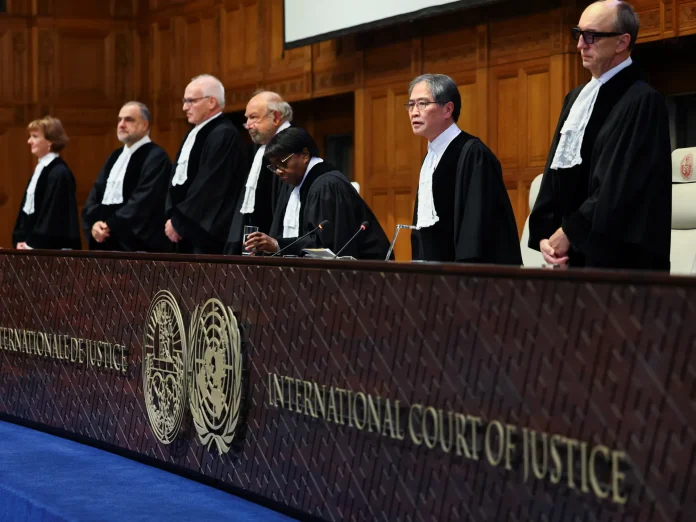News Investigators/ The International Court of Justice (ICJ) says Israel must uphold its responsibilities as the “occupying power” in the Occupied Palestinian Territory(OPT).
The responsibilities, it said, was by ensuring aid flows freely and by respecting the rights of the UN and other humanitarian agencies working in the territory.
In a detailed advisory opinion requested by the General Assembly, the UN’s top court found that Israel is required to “ensure that the population of the Occupied Palestinian Territory (OPT) has essential supplies of daily life.
These include food, water, clothing, bedding, shelter, fuel, medical supplies and services.
The court called on Israel to also “respect and protect” all aid workers, medical personnel and facilities.
By 10 votes to one, judges also held that Israel “has an obligation” to cooperate in good faith with the UN, “providing every assistance in any action it takes in accordance with the Charter of the United Nations.”
This obligation, it said, include cooperating with the Palestine Refugee Relief Agency.
UN Secretary-General Antonio Guterres, in a statement on Wednesday, described the ICJ opinion as “very important.”
It said this was coming at a moment when the UN was doing all it could to surge aid into Gaza following the ceasefire.
The opinion –requested in December 2024 – addresses Israel’s obligations in relations to the UN and other international organisations and countries vested in humanitarian operations in Palestine.
In a sign of the level of international engagement in the case, 45 states and organisations filed written statements, and 39 presented oral arguments during hearings held from April 28 to May 2.
The ICJ, based in The Hague, is the principal judicial organ of the United Nations.
It settles legal disputes between states and gives advisory opinions at the request of UN bodies.
The opinions are not legally binding, but they carry significant moral and legal authority and often guide international policy and practice.
The ICJ held that Israel is bound by international humanitarian law and human rights law to respect and protect civilians in the OPT.
Ten of the 11 judges agreed that Israel must respect the privileges and immunities of the UN and its officials, in accordance with the UN Charter.
This includes “the inviolability” of all UN premises – including those managed by UNRWA.
Vice-President Julia Sebutinde of Uganda cast the sole dissenting vote in several sections.
The ICJ also reaffirmed Israel’s obligation to allow the International Committee of the Red Cross access to detainees in the OPT and to “respect the prohibition on the use of starvation of civilians as a method of warfare.
Israel’s Foreign Ministry said in a social media post that it “categorically rejects” the ICJ’s advisory opinion.
It described the advisory as “yet another political attempt to impose political measures against Israel.”
NAN


